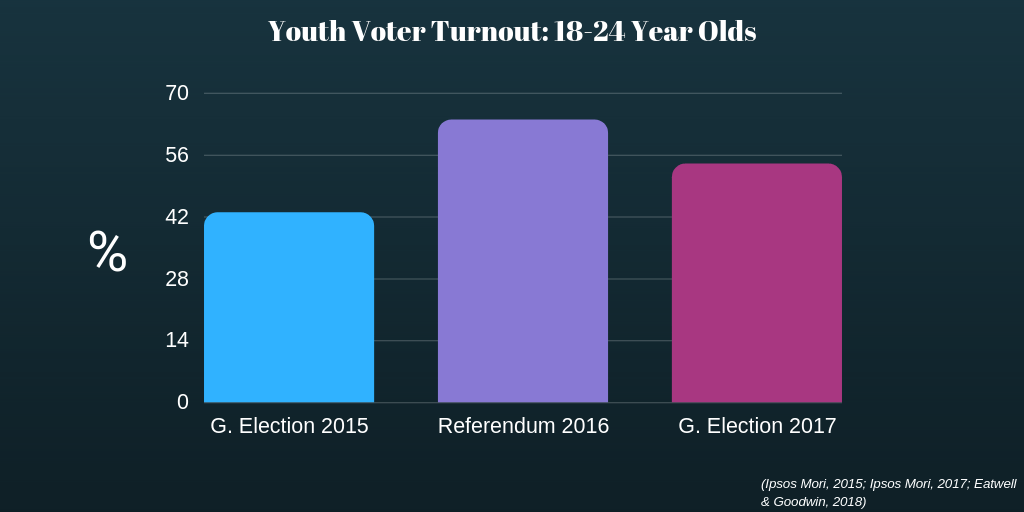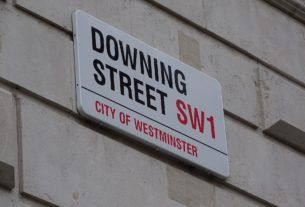Young people are reclaiming the political scene by getting involved in campaigns and by participating in the democratic process again – and Brexit proves it. Instead of partying into the early hours of the morning, watching Netflix and eating junk food, young people are in fact in the driving seat when it comes to the anti-Brexit movement and the campaign for a People’s Vote.
All this talk of the apathetic, lazy and self-centred youth should be confined to the dusty history books of the past – because both the present and the future are young, cosmopolitan and innovative.
Not everyone agrees, however. Many analysts and commentators, for instance, criticised the Oxford Dictionary’s move to name “youth quake” as 2017’s word of the year, stating that there was no such phenomenon. The British Election Survey, for example, was one of the institution dismissing an increase in the youth voter turnout as a myth and the minimal increase as statistically insignificant. Critics usually cite the fact that young voters, aged 18-24, have the lowest voter turnout of any age group, which was particularly true for the General Elections in 2015 and 2017. As illustrated in Figure 1, the youth voter turnout in these two elections was a dismal 43% and 54%, respectively.

But, this criticism is wrong and baseless for two key reasons. Firstly, it disregards the role young people played during the Brexit referendum and in its aftermath. Secondly, it ignores and side lines the democratic activities young people are engaging in beyond the ballot box. This criticism ignores the means through which young people exercise democracy. After all, democracy and citizenship are not solely about the ballot box. It is more than that. It’s about the process and the journey, rather than just the end product.
To confront the critics it is imperative to remind the public that more young people voted in the Brexit referendum in 2016 than in the two most recent General Elections in 2015 and 2017, as evident in Figure 1. In spite of a stressful exam season and horrible weather, young people were electorally active. This suggests that when it really matters and when the interests of young people are stake, young people do actually turn up at polling stations to make their votes count and make their voices heard.
In fact, 64% of young people aged 18-24 voted, with 75% voting Remain and 25% voting Leave. Although young people still had the lowest voter turnout on the day of the referendum, it was a major improvement and a huge step in the right direction. Given the low youth voter turnout at General Elections, youth participation in the referendum was revolutionary.
Nonetheless, voting is just one part of politics. It’s not the be-all-end-all. There are many other means through which one can become an active citizen.
Young people, for example, are exercising their democratic rights and citizenship through alternative methods; namely, campaigning on single issues like Brexit, which dramatically affects them. In fact, young people exercise alternative politics. This concept refers to political activities such as consumer boycotts, politics on the internet, demonstrations and campaigns. One reason for this is that young people prefer to focus on a single issue that directly affects them, as opposed to joining a political party which is far too often like a broad-church.
Two examples of alternative politics are ‘For our Future’s Sake‘ (FFS) and ‘Our Future-Our Choice‘, organisations set up by young people in response to Brexit. FFS and Our Future-Our Choice are by young people, for young people and represent the interests of young people – as evident in the below campaign video by Our Future-Our Choice. They have done this via protests, contacting Members of Parliaments, educating people about the European Union, initiating discussions on social media and via digital campaigns.
The above video highlights that young people are engaged in politics – but simply through different methods. To elaborate, these two organisations are at the forefront in the campaign against Brexit, they’re in the driving seat to instigate a People’s Vote. Their hard work illustrates that young people are not apathetic towards current affairs. Instead, they are active citizens because the establishment is alienating them with the prospect of a destructive Brexit.
Although I am a non-voter myself (due to foreign nationality), I still actively participate in politics through various other means, including: signing petitions, joining pressure groups, protesting, leafletting and canvassing for political parties, to name just a few examples.
All of the above shows that young people are taking back control through non-electoral forms of participation.
Nonetheless, this trend poses the following question: how can this non-electoral engagement be converted into electoral forms of participation as well?
* This was originally published here.
______________________________________________________________________________
Muhammed Raza Hussain is an award-winning writer: he is the Extra-Mile winner of the News Quest Young Reporter Scheme 2014 and received a certificate for Talent for Writing by Young Writers. Twitter @MuhammedRaza786 | Instagram: @M.Raza.H_
Widget not in any sidebars




